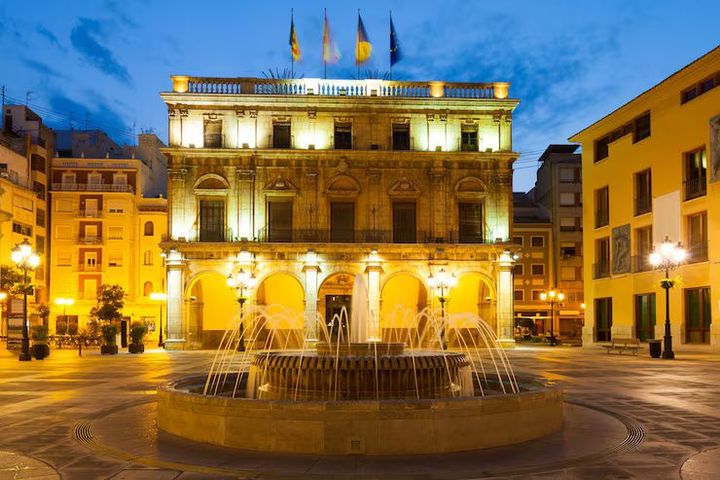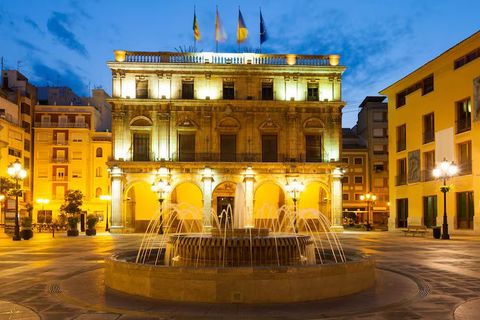
Guide To Hotel Booking in Rome
Hotel booking in Rome is an essential part of planning a visit to one of the world’s most historic and culturally rich cities. As a major destination for global tourism, Rome offers thousands of accommodation options ranging from heritage buildings to modern urban stays. With millions of travelers arriving each year, the city’s hotel landscape has grown to include diverse categories suited to different travel styles, group sizes, and itinerary preferences.
Rome’s popularity, its UNESCO-listed landmarks, and its role as a transportation hub make accommodation planning a core part of travel preparation. Many travelers explore factors such as neighborhood convenience, distance to attractions, public transport access, and amenities that support smooth travel experiences.
The topic exists because visitors want reliable, well-organized information that helps them choose the right area, understand accommodation types, and make informed decisions during their trip to Rome.

Importance – Why Hotel Booking in Rome Matters Today
Rome remains one of the most visited cities in the world, attracting tourists interested in history, architecture, food culture, art, and heritage travel. Hotel booking plays an important role in shaping the overall travel experience for several reasons:
-
Improved travel planning
Booking decisions help align accommodation with daily itineraries and transportation needs. -
Better neighborhood selection
Rome has diverse districts, each offering different atmospheres, landmarks, and connectivity. Choosing the right area prevents unnecessary travel time and improves visitor experience. -
Higher comfort and convenience
Reliable accommodation contributes to well-managed days, especially for families, older travelers, and first-time visitors. -
Understanding accommodation trends
Rome’s hotel options vary across boutique properties, historic buildings, modern stays, apartment-style lodging, and heritage districts. -
Visitor safety and awareness
Accommodation planning supports safe travel by helping visitors choose areas with good connectivity, lighting, and public presence.
Who benefits?
-
International tourists
-
Students and cultural travelers
-
Families planning extended stays
-
Solo visitors focusing on convenience
-
Business travelers attending events or meetings
Hotel booking therefore solves logistical challenges and helps travelers optimize their time in the city.
Recent Updates – Trends & Changes in 2024–2025
The hospitality landscape in Rome has experienced notable activity in the last year, influenced by tourism recovery, sustainability trends, and technology use. Key updates include:
Growth in digital-first travel planning
Throughout 2024 and early 2025, more visitors used online platforms for comparing accommodation options, viewing maps, and checking location-based insights.
Increase in sustainability-focused stays
Hotels in Rome have gradually integrated eco-friendly practices such as waste reduction, energy efficiency, and digital check-in options.
Rising interest in neighborhood-based stays
Travelers now prefer areas that offer cultural immersion, walkability, and proximity to public transportation. Districts like Trastevere, Monti, and Prati have seen higher visitor traffic during 2024.
More flexible booking policies introduced in late 2024
Hotels began providing greater clarity on stay conditions, visitor guidelines, and reservation terms, improving transparency for travelers.
Growth of boutique-style hospitality
Between mid-2024 and 2025, several boutique accommodations gained attention for offering quiet, culturally inspired spaces near Rome’s central districts.
You may use this chart to visualize travel trends:
| Year | Travel Trend | Effect on Hotel Booking |
|---|---|---|
| 2023 | Digital search & comparison | Higher demand for online research tools |
| 2024 | Sustainability focus | Eco-friendly hotel filters rose sharply |
| 2025 | Location-first planning | Neighborhood insights became essential |
Laws or Policies – Regulations Related to Hotel Booking in Rome
Hotel booking in Rome is influenced by national and municipal regulations designed to ensure visitor safety, accommodation quality, and transparent hospitality practices. These policies affect travelers in several ways:
Tourism Accommodation Standards
Hotels must meet Italy’s official classification guidelines regarding room quality, hygiene checks, and facility standards. This helps ensure consistency across hospitality offerings.
Local Stay Taxes
Rome applies a tourist stay tax (“contributo di soggiorno”), charged per person per night. Rates differ by accommodation category and are governed by municipal regulations, not by individual hotels.
Guest Identification Requirements
Hotels are required to register guests using valid identification. This is part of Italy’s travel safety and visitor record laws.
Fire and Building Safety Norms
Accommodations must follow established structural and fire safety guidelines, ensuring safer stays for visitors.
Accessibility Rules
Many buildings follow national guidelines encouraging improved accessibility, though some heritage buildings may have structural limitations.
These regulations aim to provide safe, organized, and transparent accommodation experiences for all visitors.
Tools and Resources – Helpful Platforms for Booking & Planning
Many tools simplify the process of researching accommodations in Rome. These platforms offer neighborhood insights, nearby attractions, transportation details, and user reviews.
Here are useful types of resources:
-
Hotel comparison platforms
Compare locations, amenities, and visitor ratings. -
Map-based planning tools
Help identify distances to landmarks such as the Colosseum, Vatican City, Trevi Fountain, and Roma Termini. -
Travel review platforms
Provide feedback from previous guests on cleanliness, comfort, and location. -
Rome local transport apps
Assist travelers in selecting hotels with good bus, metro, or tram access. -
Language translation apps
Useful for understanding local instructions or hotel notices.
You can also include this table as a quick reference guide:
| Tool Type | Purpose | How It Helps Travelers |
|---|---|---|
| Comparison Sites | Evaluate accommodation options | Helps identify suitable locations |
| Rome Transport Apps | Plan metro & bus routes | Ensures hotel is well-connected |
| Map Tools | View distances & landmarks | Reduces commute time |
| Travel Forums | Read traveler experiences | Supports informed decision-making |
| Translation Apps | Understand local info | Improves communication during stay |
FAQs
1. Which areas in Rome are most convenient for tourists?
Popular areas include the Historic Centre, Trastevere, Monti, Prati, and near Roma Termini. These districts offer strong cultural presence, public transportation, and proximity to major attractions.
2. How far in advance should hotel booking be planned?
Travelers usually secure accommodation several weeks before their visit, especially during spring, summer, and major holidays when tourism volume is high.
3. Are heritage buildings common in Rome’s accommodation options?
Yes. Many hotels are located in historic structures, offering an immersive cultural environment while adhering to modern hospitality standards.
4. Is public transportation widely accessible near hotels?
Rome’s metro, bus, and tram networks cover major districts. Travelers often choose accommodations within walking distance of stations like Termini, Spagna, Ottaviano, or Colosseo.
5. Do hotels in Rome follow specific safety guidelines?
Yes. Accommodations operate under regulations related to fire safety, guest identification, and hygiene standards established by Italian authorities.
Conclusion
Hotel booking in Rome is an essential part of creating a smooth and enjoyable travel experience. The city’s rich history, artistic heritage, and cultural depth make it a destination that attracts visitors from all around the world. Choosing the right accommodation helps travelers explore Rome more comfortably, save time on daily travel, and enjoy its neighborhoods more fully.
Recent trends such as sustainability, digital planning tools, and neighborhood-focused travel have shaped the way visitors select accommodations. Policies and regulations in Italy further ensure safe, transparent, and well-managed stays.
By using trusted planning tools, understanding Rome’s districts, and staying informed about updates in tourism and hospitality, travelers can make confident decisions and enjoy a rewarding experience throughout their time in the city.






